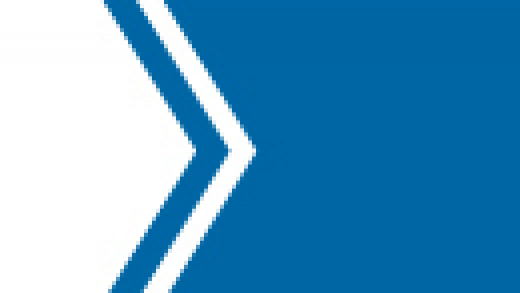:format(webp)/https://www.thestar.com/content/dam/thestar/entertainment/books/2022/11/17/michelle-obama-there-are-days-when-i-feel-fear-for-the-state-of-our-democracy/_1_michelle_obama.jpg)
When she published her memoir “Becoming” in November 2018, former United States first lady Michelle Obama had been out of the White House for almost two years, a time that then seemed politically turbulent. She talked about her childhood, her life, and wrote, “even though we’re going through all sorts of transitions — culturally, technologically, racially — people can approach the future with hope and a belief in progress … we’d all be better off if we allowed each other a little more grace.”
None of us were to know then that things were about to become even more uncertain; who knew we’d be living through a pandemic, and even more political and economic turbulence? We’ve all felt more vulnerable. These experiences have informed Michelle Obama’s followup book, “The Light We Carry.” In it she talks about how she approaches obstacles and loneliness, her hopes and fears, including for democracy, and adapting to change.
Star books editor Deborah Dundas was granted exclusive Canadian access to ask Obama some questions by email. Here’s how she responded.
There is a personal vulnerability in this book that didn’t show quite as much in “Becoming.” What made you take such a personal approach?
Well, I always think it’s important to open up and be vulnerable. Sharing our stories, warts and all, is how we build deeper connections with each other — and in the process of doing so, we also learn to understand ourselves even more. Writing “Becoming” was really meaningful for me; I opened up more in that book than I had before, and the response to it from readers was one of the most freeing, empowering feelings of my life.
Then the pandemic hit. I started thinking about this book when I was feeling cooped up and a little low because of the isolation — and that was compounded by all the injustice and xenophobia we were seeing out in the world. Being vulnerable was how I pushed past all of that. I realized how much all of us were hurting — how all of us were struggling to handle everything that was being thrown at us. I kept hearing from folks who were wondering how we could make it to the other side in one piece. That’s where this book — and the vulnerability you mentioned — comes in.
“Barack and I had always tried to operate on the principles of hope and hard work,” you write. How did that principle inform what you wanted to share?
Since Barack came to national prominence, the idea of hope has become synonymous with our names. But the truth is, it’s always been a part of who we are and how we live. So I couldn’t help but write a book built upon some of those bedrock principles we always strive for: hope, hard work, honesty, trust and so much more. This book is about leaning on those values even when you are feeling lost — and recognizing that even when life gets tough, when there are days when it just feels like it’s all over, there is always light. To me, the most powerful part is realizing that light is not something that is far away or out of reach. It’s within you. It’s in those around you. And you can kindle and foster that light through your attitudes, practices and beliefs.
A chapter on knitting wasn’t what I was expecting. Why does knitting appeal to you — and why do you devote so much space to it? (And how did Barack feel about his sweater?)
Everyone is so surprised when they hear I knit! It truly has become one of my favourite pastimes, and it’s improved my life in ways I wouldn’t have imagined. For me, knitting is a release. It lets my hands lead the way as my mind trails behind. During the peak of the pandemic, when everything felt so bleak, the act of stitching, purling, casting on and off is how I kept my anxiety at bay. Practising it roots me in this idea that I talk about in my book: the power of small. It’s the idea that narrowing your focus into a small, seemingly insignificant task can remind us of our own agency. It shows us our own ability to build and create and succeed. I truly believe that when you know you are capable of small tasks, it makes the bigger ones feel easier. And, yes, Barack loved his sweater!
“When they go low, we go high” is probably your most quoted phrase. It’s used in many different ways and variations in this book. How has its meaning changed/expanded from when you first said it in 2016 at the Democratic National Convention?
I don’t think the meaning of the phrase has changed over years, but I do think there have been moments where it’s felt harder to live up to it. When I said it for the first time in 2016, I never thought it would become synonymous with my name. But it’s taken on a life of its own — people have really gravitated toward it — and that’s a good thing.
For a long time, especially in the White House, going high was a simple mantra Barack and I used to encourage each other. It was about our commitment to telling the truth, doing our best, keeping perspective and finding a way to stay tough through it all.
These days, I feel like it’s become a personal line in the sand. A line I am not willing to cross — one that gives me space to pause, feel, understand my hurt and rage, and come up with a game plan to overcome the challenges life throws our way. So when something like the insurrection happened in the United States, yes, I felt that palpable grief and anger and fear that so many felt. Then I thought about what I could do to set the course for something different — for the outcome I wanted. That process led me to double down on my passion for encouraging people to take part in our democracy and register to vote.
So “going high” isn’t just a slogan. It’s not just a framing device. It’s about real action. It’s about being constructive, leading with dignity and tackling issues in ways that make sense for you. It’s about building the relationships — and the world — we want to see.
You speak of your father a lot. What comes across is how he shared wisdom by example and through anecdotes and storytelling. How did that approach affect how and what you learned from him? Is that something you try to emulate?
My father always knew what to say and when to say it. I learned so much about life and about the person I wanted to be by watching him overcome the challenges the world threw his way. And he did it with a care and lightness that drew others toward him. My dad was the first one who taught me that it was OK to lean on something to get through life. For him, in a very literal way, it was a cane or a wheelchair. For others, it’s friends or partners or beliefs. That’s really the heart of this book — it’s a collection of my own personal tools that I’ve used to overcome challenges.
So yes, I definitely try to emulate him in as many ways I can. To be honest, I think writing this book is one of those ways. He showed me how meaningful it can be to share your experiences with others — and to do it with grace and laughter. My mother taught me that too — and I’m so grateful that she’s still with me to keep teaching me those lessons and a whole lot more.
You refer numerous times to the idea of being “comfortably afraid.” What still frightens you?
To me, the idea of being comfortably afraid is about taking a step back after seeing something that is scary or jarring to you and then thinking a little bit more critically about it. Maybe there isn’t a reason to be as frightened as you think there is. Maybe you hold more power than you think you do.
Some days I still get a little jittery when I feel unprepared. That’s a big part of my personality and it’s rooted in my personal story and experience — from growing up in a family with a father battling a disability to the expectations I felt as one of the few Black students at an Ivy League university. Even after all these years, that fear still manifests itself when I’ve got a big speech coming up or even when I’m doing something less familiar, like acting in a TV show. Those are small fears that I can see the contours of — that I know how to overcome. Other fears are a little bigger. There are days when I feel fear for the state of our democracy. I fear collective apathy. For me — and I talk about this in the book — those big fears are no excuse for inaction. It’s why I work so hard to engage folks in our democracy all year round, not just during election season.
There is both a personal loneliness and a cultural loneliness at the heart of this book — a pained America, a pained world. What do you see as the balm for that?
I think you get at a good point here. We are more isolated than ever, despite being more connected through technology and social media. I really do believe that friendships are the cure to that loneliness — having a community we can turn to for peace and comfort and relief can save us from being swept away by life’s uncertainties. In this book, I talk a lot about my “Kitchen Table” of friends who I turn to for just about everything. Some years this table has felt small as people move in and out of my life. Other times, it’s big and bustling and overflowing. I believe that having people to turn to whose energy you can share — in person whenever possible — really makes a difference in a chaotic world. Getting to know one another and sharing with one another is integral to the human experience. It’s something we can’t afford to let go.
JOIN THE CONVERSATION
:format(webp)/https://www.thestar.com/content/dam/thestar/entertainment/books/2022/11/17/michelle-obama-there-are-days-when-i-feel-fear-for-the-state-of-our-democracy/the_light_we_carry_by_michelle_obama.jpg)
:format(webp)/https://www.thestar.com/content/dam/thestar/entertainment/books/2022/11/17/michelle-obama-there-are-days-when-i-feel-fear-for-the-state-of-our-democracy/michelle_and_barack.jpg)
:format(webp)/https://www.thestar.com/content/dam/thestar/entertainment/books/2022/11/17/michelle-obama-there-are-days-when-i-feel-fear-for-the-state-of-our-democracy/michelle_obama_giving_a_hug_something_she_s_famous_for.jpg)
:format(webp)/https://www.thestar.com/content/dam/thestar/entertainment/books/2022/11/17/michelle-obama-there-are-days-when-i-feel-fear-for-the-state-of-our-democracy/obama_and_father.jpg)



